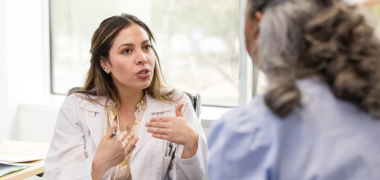
This role has a high level of AI exposure. While some human skills are required, many tasks could be automated or replaced by new technology.
Explore all careersA Clinical Research Associate monitors clinical trials for compliance, coordinates with sites, and ensures accurate data collection and reporting.
Get qualified to work as a Clinical Research Associate with a course recognised across Australia. Speak to a training provider to learn more.













Browse occupations related to Clinical Research Associate



If you're looking to advance your career in the health and biomedical fields, consider enrolling in one of the Clinical Research Associate courses in Brisbane. With a vibrant healthcare sector and esteemed educational institutions, Brisbane is an excellent place for professionals to gain advanced qualifications. Courses such as the Bachelor of Nursing, offered by QUT, provide the necessary foundation for aspiring Clinical Research Associates. Equally, the Bachelor of Health Science from UQ is tailored for experienced learners aiming for higher-level roles in clinical research.
Brisbane boasts several reputable training providers that offer quality education in the Clinical Research Associate field. UniSC is known for its Bachelor of Biomedical Science, an excellent choice for those who wish to delve into the life sciences. These programmes not only equip students with theoretical knowledge but also provide practical experiences, ensuring graduates meet the competitive requirements of the healthcare industry.
Upon completing one of the Clinical Research Associate courses in Brisbane, various career paths will become available. Graduates may explore exciting job roles such as a Medical Laboratory Technician or a Clinical Research Coordinator, both of which are critical in conducting clinical trials and research. Additionally, the expertise gained can lead to positions like Medical Laboratory Scientist or a Medical Researcher, expanding your career opportunities within this dynamic field.
Understanding the requirements and responsibilities of a Clinical Research Associate is crucial for anyone pursuing this career path. In addition to core competencies in research methodology and data analysis, you will also find it beneficial to explore related job roles, such as a Pathologist or a Phlebotomist. Engaging in these areas will enhance your understanding of the clinical research landscape and better prepare you for the challenges ahead.
Securing your future in clinical research starts with selecting the right course, and the Clinical Research Associate courses in Brisbane offer a pathway designed for professionals eager to elevate their careers. Whether you choose to study at QUT, UQ, or UniSC, you can be confident in receiving a top-notch education. Start your journey today by visiting the relevant course pages and open the door to a rewarding and impactful career in health and biomedical sciences.